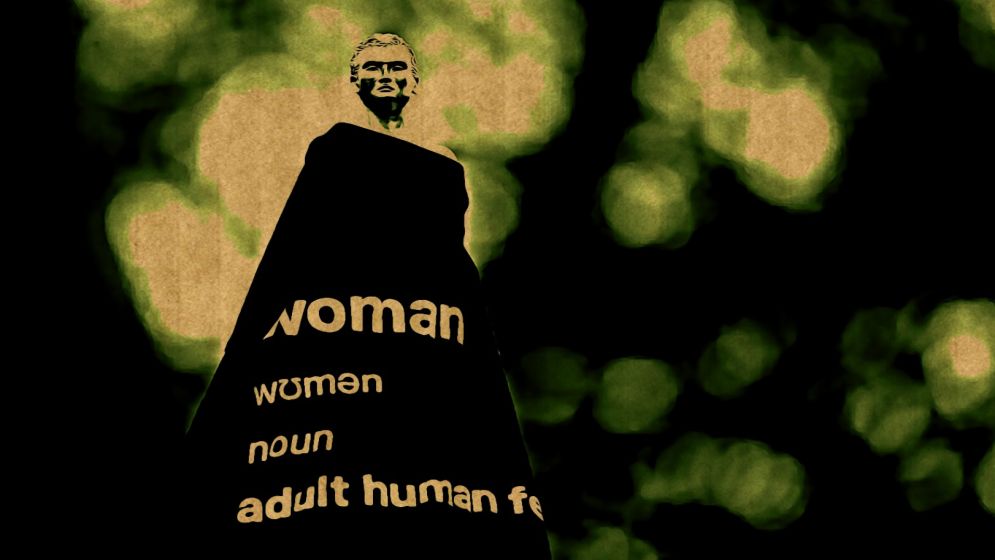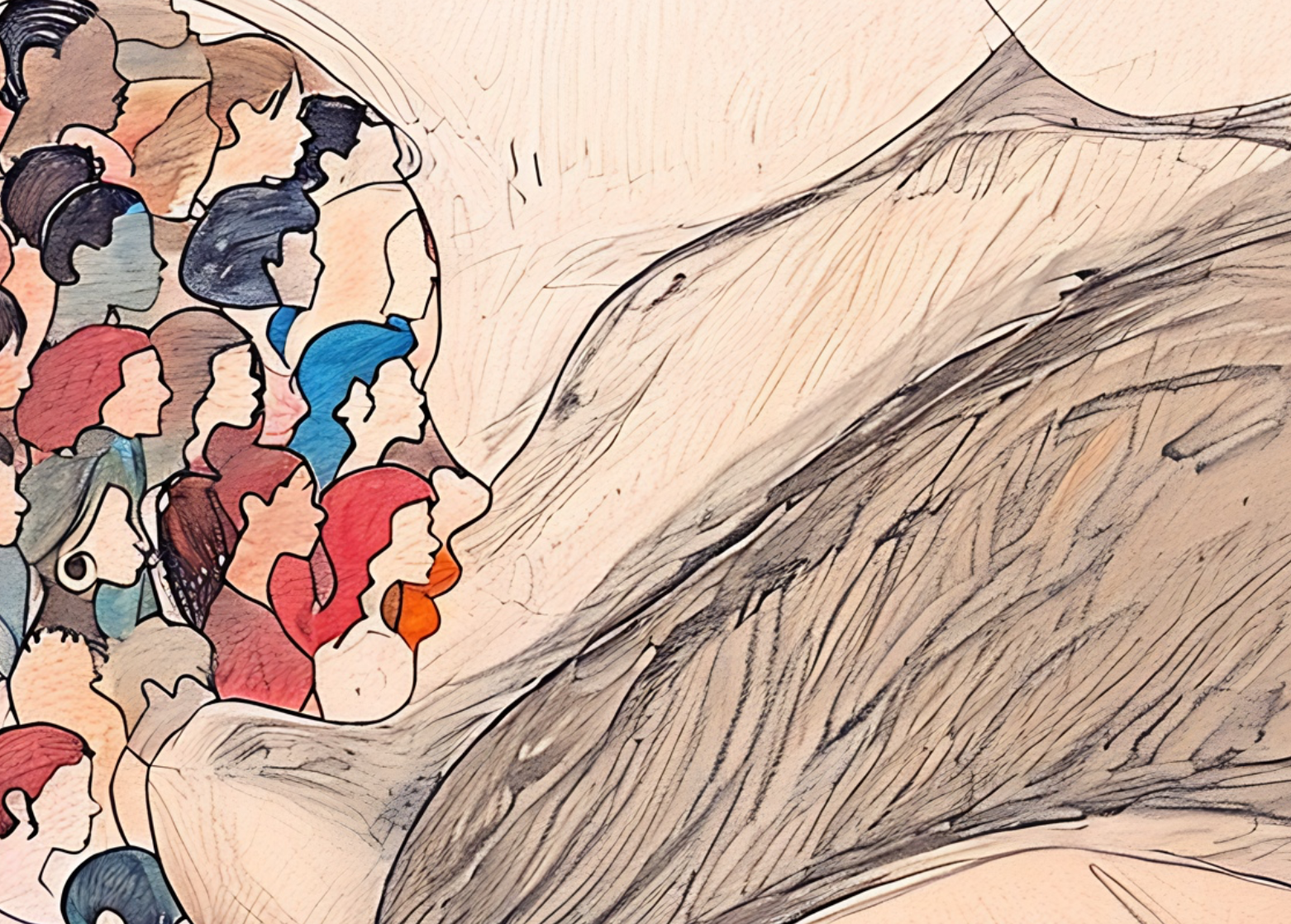Selective feminism in the “Shahbagh Model” exposes the deep-rooted issue of Awami cultural fascism

For a decade and a half, I have argued that the specter haunting Bangladesh is not merely political, but profoundly cultural.
It is a fascism that operates not through overt force alone, but through the insidious suppression of dissenting voices and alternative expressions.
Over these years, a form of cultural genocide had taken root, where any cultural manifestation outside the deposed Awami League's sanctioned narrative was systematically stifled.
The nation's cultural landscape, far from fostering a vibrant civic identity, had become a monoculture, a reflection of the League's dominance.
When I first posited that addressing this cultural hegemony was the necessary first step in combating the broader authoritarian trend, I encountered widespread skepticism.
Even those who opposed the Awami League politically, those who decried the Shahbagh movement, remained, in essence, culturally beholden to the very framework they ostensibly rejected.
This is because our prevailing understanding of intellectualism, it seems, is largely defined by the Shahbagh ethos.
Even among the few who dared to challenge this orthodoxy, figures like Farhad Mazher, known for his materialist views, remained culturally aligned with Shahbagh, despite their political opposition.
This reveals a deeper paradox: a pervasive, if often unspoken, antipathy towards Islam, coupled with a willingness to exploit religious sensitivities for political expediency.
Their pronouncements on Islam, consequently, often betray a distorted reflection of the atheist's own desires, rather than a genuine engagement with the complexities of faith.
This dissonance underscores the deep-seated cultural contradictions that continue to shape, and ultimately undermine, Bangladesh's struggle for a truly pluralistic society.
Building on the assertion that Bangladesh's struggle is fundamentally cultural, a new, equally perilous dynamic emerges: the reactionary forces that have risen in opposition to Shahbagh.

Dissecting the new
reactionary forces
While the Shapla movement may have delivered a political blow to the Shahbagh narrative, a critical caveat must be made.
These reactionary forces, often cloaked in pious rhetoric, harbor their own brand of hypocrisy, a calculated opportunism seeking power through the very means they decry.
The fact is Bangladesh cannot afford a pendulum swing now, replacing one form of cultural dominance with another.
But the reality remains stark: the cultural industry, the very heart of the nation's identity, still remains firmly in the grip of the defeated Shahbagh forces.
Their ideology, though politically diminished, still permeates the mainstream, a latent threat poised to resurface in new and insidious forms.
The ongoing advocacy for women's rights can be a case in point.
For within their framework, where the League serves as their political proxy, and where the League views rape as a tool of power, such advocacy risks normalizing the very violence it purports to condemn.
As I have long maintained, Shahbagh serves as a crucial historical litmus test, revealing the true character of any political actor.
Begum Khaleda Zia's characterization of Shahbagh as the "destroyer of religion," a "mob of mass murderers," encapsulates the deep divisions that persist.
It is this very movement that has effectively transformed citizenship and democracy into a partisan agenda, a tool wielded exclusively by the Awami League.
Therefore, the cultural battleground must be decisively won. To liberate Bangladesh from the League's grasp, a complete repudiation of their cultural hegemony is essential.
Because Awami League's ultimate weapon is culture, their shield is a carefully curated image of enlightenment, and their guiding star is their alignment with India.
This powerful nexus dominates Bangladesh's cultural landscape and this is the harsh reality that is better to be understood.
However, the counter-narrative cannot be built on the shifting sands of populism or the hollow pronouncements of opportunists.
It requires a profound intellectual and philosophical intervention, a thoughtful and coherent alternative. Simplistic aesthetics will not suffice. Even violence, as Nietzsche observed, possesses its own aesthetic.
A true counter-narrative must transcend superficiality, delving into the core of Bangladesh's cultural identity and offering a vision of genuine pluralism and liberation.

Understanding the
nuances is the key
In the ongoing struggle for Bangladesh's soul, the distinction between a cockroach and a butterfly serves as a potent metaphor.
To kill the former elicits praise, a necessary act of pest control; to kill the latter, however, brands one as cruel, a destroyer of beauty.
This simple analogy encapsulates the delicate balance required in navigating the complex cultural and political landscape of our nation.
As I have argued, the philosophical narrative of Bangladesh's national politics must be anchored in a robust Bangladeshi nationalism, one that stands in opposition to both Hindutva and the insidious, Islamophobic tendencies of the so-called progressive mainstream.
The 2024 uprising, a right-wing revolt, presents a unique opportunity.
Within this context, we must forge a democratic process that ensures the full and equal citizenship of Muslims, dismantling the entrenched system that relegates them to second-class status.
The eradication of the anti-Islamic secular sphere is a prerequisite for a truly inclusive society.
This necessitates the construction of a value-based state, one that safeguards the right of all citizens to practice their culture freely, while simultaneously rejecting fascist cultural practices that masquerade as democratic rights.
The urgency of this task cannot be overstated.
Furthermore, the feminist movement, despite its 54-year tenure, has failed to deliver tangible security for women.
Their selective humanitarianism, confined to the "modern sphere," has only served to reinforce the League's oppressive grip.
The absence of a broader discourse, one that acknowledges the diverse realities of women's lives, has fragmented the nation into warring tribes. This "gendered Islamophobia" has no connection to women's progress.
Conversely, the reactionary politics that demonize the "modern woman" as an enemy pose an equally grave threat to Islamic traditions. To build a truly just society, we must engage with women as active participants, not passive subjects.
This requires a nuanced exploration of the philosophical, social, and moral dimensions of the body, breaking down the artificial divisions that permeate everyday discourse.
The dismantling of these binaries is essential to forging a unified and equitable Bangladesh.
We have to understand that a nation's beauty is inextricably linked to the well-being of its women and children.
A society that fails to prioritize their safety and security forfeits any claim to genuine progress. Without their fundamental security, any purported advancements ring hollow.
Crucially, the construction of a unified national identity demands the cessation of all divisive forces, whether they manifest as partisan conflict or gender-based antagonism.
This is not a matter of pitting men against women, nor one political faction against another. Therefore, the rallying cry must be:
"Regardless of party affiliation,
The state belongs to all."
The state must be held accountable to every citizen. It must be obligated to guarantee the security of each individual. This is the foundation upon which a truly just and equitable Bangladesh must be built.
—
Rezaul Karim Rony is a writer and thinker. He is the editor of Joban magazine

